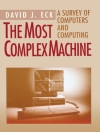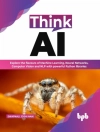For most of our history the wealth of a nation was limited by the size and stamina of the work force. Today, national wealth is measured in intellectual capital. Nations possessing skillful people in such diverse areas as science, medicine, business, and engineering produce innovations that drive the nation to a higher quality of life. To better utilize these valuable resources, intelligent, knowledge-based systems technology has evolved at a rapid and significantly expanding rate.
Reflecting the most fascinating AI-based research and its broad practical applications, intelligent, knowledge-based systems technology is being utilized by nations to improve their medical care, advance their engineering technology, and increase their manufacturing productivity, as well as play a significant role in a very wide variety of other areas of activity of substantive significance. Today, in the beginning of the 21st century, it is difficult to imagine the development of the modern world without extensive use of the AI information technology that is rapidly transforming the global, knowledge- based economy as well as entire societies.
The breadth of the major application areas of intelligent, knowledge-based systems technology is very impressive. These include, among other areas:
Agriculture, Business, Chemistry, Communications, Computer Systems, Education, Electronics, Engineering, Environment, Geology, Image Processing, Information Management, Law, Manufacturing, Mathematics, Medicine, Meteorology, Military, Mining, Power Systems, Science, Space Technology, and Transportation.
The great breadth and expanding significance of this field on the international scene require a multi-volume, major reference work for an adequately substantive treatment of the subject, ‘Intelligent Knowledge-Based Systems: Business and Technology in The New Millennium.’ This work consists of the following distinctly titled and well integrated volumes.
- Volume I. Knowledge-Based Systems;
- Volume II. Information Technology;
- Volume III.Expert and Agent Systems;
- Volume IV.Intelligent Systems;
- Volume V.Neural Networks.
The Volumes:
- Volume 1, Knowledge-Based Systems, addresses the basic question of how accumulated data and staff expertise from business operations can be abstracted into useful knowledge, and how such knowledge can be applied to ongoing operations. The wide range of areas represented includes product innovation and design, intelligent database exploitation, and business model analysis. (Eleven chapters)
- Volume 2, Information Technology, addresses the important question of how data should be stored and used to maximize its overall value. Case studies examine a wide variety of application areas including product development, manufacturing, product management, and product pricing. (Ten chapters)
- Volume 3, Expert and Agent Systems, considers such application areas as image databases, business process monitoring, e-commerce, and production planning and scheduling, offering a wide range of perspectives and business-function concentrations to stimulate readers’ innovative thought. (Ten chapters)
- Volume 4, Intelligent Systems, discusses applications in such areas as mission-critical functions, business forecasting, medical patient care, and product design and development. (Nine chapters)
- Volume 5, Neural Networks, Fuzzy Theory, and Genetic Algorithm Techniques, explores applications in such areas as bioinformatics, product life-cycle cost estimating, product development, computer-aided design, product assembly, and facility location. (Ten chapters)
Table des matières
Knowledge-Based Systems.- Platform-Based Product Design and Development: Knowledge Support Strategy and Implementation.- Knowledge Management Systems in Continuous Product Innovation.- Knowledge-Based Measurement of Enterprise Agility.- Knowledge-Based Systems Technology in the Make or Buy Decision in Manufacturing Strategy.- Intelligent Internet Information Systems in Knowledge Acquisition: Techniques and Applications.- Aggregator: A Knowledge Based Comparison Chart Builder for e Shopping.- Impact of the Intelligent Agent Paradigm on Knowledge Management.- Methods of Building Knowledge-Based Systems Applied in Software Project Management.- Security Technologies to Guarantee Safe Business Processes in Smart Organizations.- Business Process Modelling and Its Applications in the Business Environment.- Knowledge Based Systems Technology and Applications in Image Retrieval.- Information Technology.- Techniques in Integrated Development and Implementation of Enterprose Information Systems.- Information Systems Frameworks and Their Applications in Manufacturing and Supply Chain Systems.- Modelling Techniques in Integrated Operations and Information Systems in Manufacturing Systems.- Techniques and Analyses of Sequential and Concurrent Product Development Processes.- Design and Modeling Methods for Components Made of Multi-Heterogeneous Materials in High-Tech Applications.- Quality and Cost of Data Warehouse Views.- Web Data Extraction Techniques and Applications Using the Extensible Markup Language (XML).- Product Life Cycle Management in the Digital Age.- Product Redesign and Pricing in Response to Competitor Entry: A Marketing-Production Perspective.- Knowledge Discovery by Means of Intelligent Information Infrastructure Methods and Their Applications.- Expert and Agent Systems.- Techniques in Knowledge-Based Expert Systems for the Design of Engineering Systems.- Expert Systems Technology in Production Planning and Scheduling.- Applying Intelligent Agent-Based Support Systems in Agile Business Processes.- The Knowledge Base of a B2B e Commerce Multi-Agent System.- From Roles to Agents: Considerations on Formal Agent Modeling and Implementation.- Agent-Based elearning Systems: A Goal-Based Approach.- Combining Temporal Abstraction and Data Mining Methods in Medical Data Analysis.- Distributed Monitoring: Methods, Means and Technologies.- Finding Patterns in Image Databases.- Cognition Techniques and Their Applications.- Intelligent Systems.- Artificial Intelligence and Integrated Intelligent Systems in Product Design and Development.- Intelligent Patient Monitoring in the Intensive Care Unit and the Operating Room.- Mission Critical Intelligent Systems.- An Intelligent Hybrid System for Business Forecasting.- Intelligent Systems Technology in the Fault Diagnosis of Electronic Systems.- Techniques in the Utilization of the Internet and Intranets in Facilitating the Development of Clinical Decision Support Systems in the Process of Patient Care.- Risk Analysis and the Decision-Making Process in Engineering.- Mechatronics and Smart Structures Design Techniques for Intelligent Products, Processes, and Systems.- Engineering Interaction Protocols for Multiagent Systems.- Neural Networks, Fuzzy Theory and Genetic Algorithms.- Neural Network Systems Technology and Applications in CAD/CAM Integration.- Neural Network Systems Technology and Applications in Product Life-Cycle Cost Estimates.- Neural Network Systems Technology in the Analysis if Financial Time Series.- Fuzzy Rule Extraction Using Radial Basis Function Neural Networks in High-Dimensional Data.- Fuzzy Decision Modeling of Product Development Processes.- Evaluation and Selection in Product Design for Mass Customization.- Genetic Algorithm Techniques and Applications in Management Systems.- Assembly Sequence Optimization Using Genetic Algorithms.- Kernel-Based Self-Organized Maps Trained with Supervised Bias bor Gene Expression Data Mining.- Computational Intelligence for Facility Location Allocation Problems.












